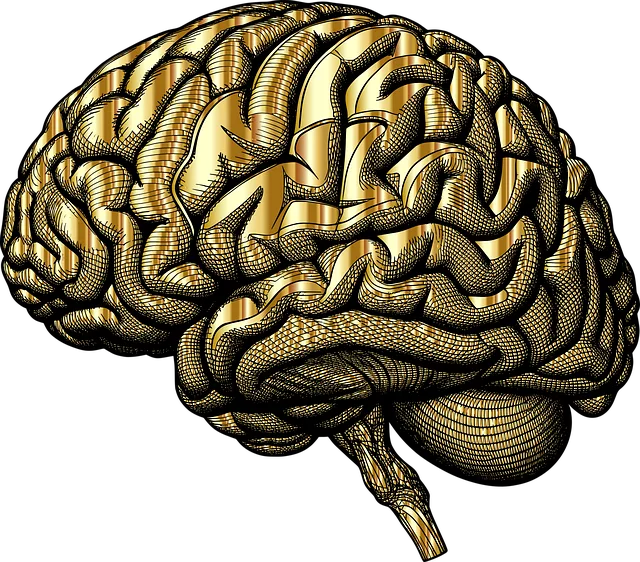The Superior Kaiser mental health programs emphasize holistic mood regulation for emotional balance in today's chaotic world. Integrating evidence-based stress management strategies, cognitive behavioral techniques (CBT), mindfulness, and lifestyle interventions like nutrition, exercise, and sleep, these programs empower individuals to identify and challenge negative thought patterns, build resilience, reduce stress, and enhance self-care. CBT, combined with social skills training and empathy building, optimizes emotional intelligence, while mindfulness integration in education and community initiatives fosters a supportive societal environment. Ultimately, this holistic approach promotes long-term emotional stability and improved quality of life.
“Discover effective mood regulation strategies that can transform your emotional well-being. This comprehensive guide explores various techniques to achieve and maintain a balanced state of mind. From cognitive behavioral therapies proven effective in Superior Kaiser mental health programs to mindfulness practices and lifestyle changes, learn how to cultivate calm amidst chaos. Uncover the power of understanding and managing your emotions for enhanced overall mental health.”
- Understanding Mood Regulation: Unraveling Emotional Balance
- The Role of Cognitive Behavioral Techniques in Kaiser Mental Health Programs
- Mindfulness and Meditation: Cultivating Calm in Chaotic Minds
- Lifestyle Interventions: Nutrition, Exercise, and Sleep for Optimal Mood Management
Understanding Mood Regulation: Unraveling Emotional Balance

Understanding Mood Regulation is a pivotal step towards achieving emotional balance and overall well-being. It involves recognizing and managing one’s feelings to maintain a stable and positive mindset. In today’s fast-paced world, mental health professionals often turn to evidence-based strategies like those offered by superior Kaiser mental health programs. These programs cater to individuals seeking effective tools for stress management, a key aspect of mood regulation. By integrating various therapeutic techniques, they foster Mental Health Awareness, enabling folks to navigate life’s challenges with resilience.
The intricate process of mood regulation requires a holistic approach. It involves not just managing intense emotions but also understanding their triggers and patterns. Risk Management Planning becomes an essential tool for professionals in this domain, helping them guide clients towards healthier coping mechanisms. Through these strategies, individuals can enhance their emotional intelligence, leading to improved relationships and overall quality of life.
The Role of Cognitive Behavioral Techniques in Kaiser Mental Health Programs

Cognitive Behavioral Techniques (CBT) play a pivotal role in the superior Kaiser mental health programs, offering effective tools for mood regulation. CBT helps individuals identify and challenge negative thought patterns, replacing them with more positive and realistic ones. This process empowers patients to manage their emotions more effectively, leading to improved mental well-being. Through structured therapy sessions, these techniques foster self-awareness, enabling people to navigate their emotional landscapes with greater clarity and resilience.
Integrated into comprehensive programs, CBT is often coupled with other evidence-based practices such as Social Skills Training and Empathy Building Strategies. The Mental Health Policy Analysis and Advocacy component of these programs ensures that the latest research and best practices are reflected in treatment modalities, further enhancing the effectiveness of mood regulation strategies. This holistic approach not only addresses symptoms but also promotes long-term emotional stability and improved quality of life for individuals engaging in Kaiser mental health programs.
Mindfulness and Meditation: Cultivating Calm in Chaotic Minds

In today’s fast-paced world, where chaos and constant stimulation can overwhelm even the most resilient minds, mindfulness and meditation stand as powerful tools for superior Kaiser mental health programs. These ancient practices have been scientifically proven to enhance resilience building by teaching individuals to focus on the present moment, observe their thoughts without judgment, and cultivate a sense of calm amidst the hustle and bustle. By engaging in regular self-care practices such as mindfulness meditation, folks can significantly reduce stress levels, improve emotional regulation, and promote overall mental well-being.
The benefits extend beyond individual experiences; mindfulness and meditation also play a crucial role in Mental Health Policy Analysis and Advocacy. As awareness grows about the positive impact of these practices, policies are beginning to reflect this understanding. Incorporating mindfulness into educational curricula, workplace wellness programs, and community initiatives can foster healthier environments that support mental health. This holistic approach not only empowers individuals to take control of their own well-being but also contributes to a more supportive and compassionate society where self-care practices like meditation are encouraged and accessible to all.
Lifestyle Interventions: Nutrition, Exercise, and Sleep for Optimal Mood Management

Lifestyle interventions play a pivotal role in optimal mood management, with nutrition, exercise, and sleep serving as powerful pillars for enhancing mental wellness. The Superior Kaiser mental health programs extensively emphasize these aspects, recognizing their profound impact on overall mental health awareness and coping skills development. A balanced diet, rich in essential nutrients, can significantly influence neurotransmitter production, which are chemical messengers responsible for regulating mood. Regular physical activity not only boosts serotonin levels but also reduces stress hormones, fostering a more positive mindset. Additionally, prioritizing quality sleep allows the brain to restore and consolidate memories, further contributing to emotional balance.
Integrating these lifestyle practices into daily routines can be transformative, providing individuals with effective coping skills development tools. By nurturing both mind and body through mental wellness strategies like proper nutrition, exercise, and adequate rest, people can better navigate life’s challenges and maintain a sense of emotional well-being. This holistic approach, advocated by Superior Kaiser mental health programs, underscores the interconnectedness of physical and mental health, ultimately enriching one’s overall quality of life.
In conclusion, superior Kaiser mental health programs integrate diverse mood regulation strategies. From cognitive behavioral techniques to mindfulness practices and lifestyle interventions like nutrition, exercise, and sleep, these approaches holistically address emotional balance. By combining evidence-based methods, Kaiser offers comprehensive support for managing and improving mental well-being. Through understanding and implementing these strategies, individuals can navigate life’s challenges with enhanced resilience and a greater sense of calm.






